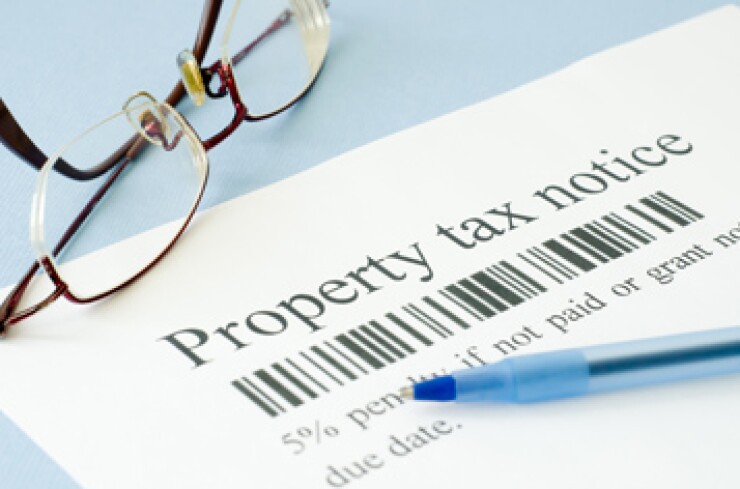
BRADENTON, Fla. - As Florida's economy slowly bounces back from the recession, slow growth in property tax collections will force local governments to rely more on non-ad valorem revenue to pay for essential services, according to Moody's Investors Service.
As a result, less non-property tax revenue - such as sales and utility taxes, state revenue sharing, permits, and fees - will be available to pay debt service.
"In today's new fiscal environment, strong financial management will be critical for Florida local governments to maintain financial health while comfortably meeting debt service obligations," Moody's analyst John Incorvaia said in a report Monday.
Florida's 67 counties and school districts along with more than 400 cities, towns, and villages, rely heavily on property taxes to fund their budgets.
Moody's expects local property tax revenues to grow slowly over the next several years compared to pre-recession growth rates because of Florida's lagging housing market, state laws instituting tax caps, and political pressure to avoid property tax hikes.
"This new environment will leave local governments dependent to a greater extent on non-ad valorem funds to support daily operations, reducing the previously ample availability of non-ad valorem revenues for payment of debt," Incorvaia said.
Between 2003 and 2008, local tax bases throughout the Sunshine state doubled, and some even tripled in size as house prices rose exponentially. As the nationwide fiscal crisis occurred, tax bases plummeted between 25% and 50% before leveling off in 2011, according to Moody's.
In addition to the drop in home values, the Florida housing market has had some of the highest foreclosure rates in the country.
"While we expect property values to slowly recover, the recovery will remain fragile and vulnerable to another global slowdown," Incorvaia said.
In reaction to skyrocketing tax bills in the early 2000s, the Legislature implemented tax caps that will also keep property tax revenue growth moderate.
A tax cap implemented in 2007 requires cities, counties, and special districts to freeze property tax levies at fiscal 2007 levels, and ties future increases to new construction levels and per capita personal income growth rates.
"Near-term, we expect the cap formula to result in low single-digit percentage increases annually given that construction rates and personal income growth remain well below pre-recession highs," said Moody's.
Political constraints also will limit property tax growth even though local governments can raise the tax rate to offset losses when property values decline. Many governments have not raised the tax rate "perhaps because of a fear of resident backlash," Incorvaia said.
In Miami-Dade County, voters recalled then Mayor Carlos Alvarez in 2011 and county commissioner Natacha Seijas after they supported a tax increase.
In 2013, current Miami-Dade Mayor Carlos Gimenez withdrew his recommendation for a small tax increase to fund fire-rescue and library operations despite severe reductions in reserves due to "dissatisfaction" from county commissioners and residents, said Incorvaia.
Florida relies more heavily than many other states on non-ad valorem tax revenues to secure debt due in part to the requirement that voters approve all general obligation bonds, with such approval rare given anti-tax sentiment, according to Moody's.
"Because a larger portion of non-ad valorem operating revenues will now be required to fund essential services than before, this could result in diminished available revenues to pay non-ad valorem debt," Incorvaia said. "Governments that continue to issue large amounts of non-ad valorem debt in this new environment could experience reduced operating flexibility."





